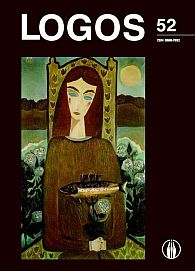AKVINIETIS PRAKTINIO PROTO IR RELIGIJOS SANDŪROJE
Aquinas on the Interface between Practical Reason and Religion
Author(s): John F. X. KnasasSubject(s): Philosophy
Published by: Visuomeninė organizacija »LOGOS«
Keywords: First Practical Principle; ratio entis; ratio boni; passions; freedom of will; love
Summary/Abstract: Among Thomists the standard practice is to show the openness of human nature to beatitude from the speculative side. The intellectual desire to know the richness of the notion of being, the ratio entis, becomes the desire to know the creator who as esse subsistens embodies the intelligible heart of being. I want to try the same strategy but from the practical side. I believe that more people experience a desire to love than a desire to know. Few have noticed that Aquinas' first practical principle "Good ought to be done" is, as I will explain, a call to be respectful and solicitous of ourselves and others as intellectors of being. Hence, fidelity to this principle illustrates a connection between being and love so that the greater is the concentration of being, then the greater is the concentration of love. A subsistent instance of being should be a subsistent instance of love. In his metaphysics Aquinas attains the creator as subsistent being. Hence, contact with that instance would strengthen in an unparalleled way the human's fidelity to the first practical principle. Does this contact in fact occur? That philosophical question raises the religious possibility. In its parade of saints, Christianity provides tantalizing evidence that that contact is realized.
Journal: LOGOS - A Journal of Religion, Philosophy, Comparative Cultural Studies and Art
- Issue Year: 2007
- Issue No: 52
- Page Range: 78-87
- Page Count: 10
- Language: Lithuanian

